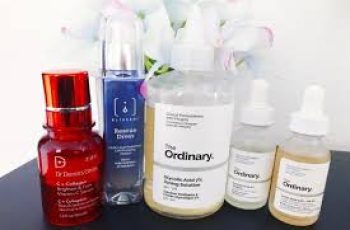
What is the skin microbiome? And why is it important?
When you hear the words “good bacteria” and probiotics, you probably think of your gut health. But just like your gut, your skin has a microbiome, but it’s often forgotten or even unknown, causing it to be neglected. But what exactly is the microbiome? Is it really that important? And how should you manage yours? Don’t worry, we’re here to help.
What is your skin’s microbiome?
The skin microbiome consists of the community of organisms that live on your skin, including a range of bacteria, viruses, and fungi, collectively known as the skin flora. Together, they create an ecosystem that ensures that the function and health of your skin is maximized, such as your skin’s ability to absorb skincare products, as well as its overall appearance. When you think about it, the complexity of the microbiome is staggering: billions of bacteria and countless strains that work together in harmony most of the time.
The job of the microbiome is no walk in the park, as the skin itself is a pretty hostile place. Their natural acidic pH makes them perfect for fighting harmful bacteria, and the natural production of sebum (the oil in your skin) makes them highly antimicrobial.
Luckily, our skin is bilingual, so different parts can communicate with each other. The skin’s bacteria can communicate with the skin’s immune system, which in turn can communicate with the bacteria in the gut. This line of communication between the skin and various aspects of the body stays balanced and ensures a fully functional, happy microbiome.
What does the skin microbiome do?
A lot.
All day long.
Every day.
These meniscus organisms work around the clock to protect the skin from daily aggressors like UV rays, harmful bacteria, and free radicals. The skin is colonized with unfriendly microbes, which the microbiome must combat while regulating pH levels. While combating all of this, it also delivers nutrients and important skin lipids to the skin and helps form the skin’s protective barrier to keep it healthy and balanced.
You have to admit, this sounds like a pretty big task.
Why is your microbiome important?
The microbiome is important for ensuring your skin is cared for and able to function properly throughout the day. Since our faces are relentlessly assaulted by environmental aggressors like pollution and UV rays every day, we subconsciously rely more on our skin’s microbiome to heal any damage done. By damaged, I mean skin that looks dry, dull, and lifeless, and signs of premature aging like fine lines and wrinkles become apparent. That’s why we need to take the time to do our best to care for and protect them. When the skin flora fails to form a protective barrier for the skin, some skin conditions like eczema and dermatitis emerge, with dry, itchy and uncomfortable patches appearing on the body, and the aforementioned daily stress can make things worse.
There are some simple ways to restore the skin microbiome, which we will now cover.
How do I restore my skin microbiome?
The skin flora prefers an acidic environment that the body naturally provides. There is a connection between the skin’s immunity and its overall appearance and function in everyday life, making it more susceptible to pathogens that start to grow and make the skin vulnerable. The skin microbiome can be damaged in a number of ways:
Soaps
Harsh skin care products
Environmental factors
Improper and overuse of antibiotics
There are several ways to restore and maintain the skin microbiome:
Don’t cleanse too much
A good skin care routine will keep your skin looking and feeling great. However, remember that there can be too much of a good thing. Over-cleansing your skin with harsh cleansers or exfoliating too often or too harshly can strip your skin of healthy microbes, allowing unhealthy pathogens to spread to your skin, which is a problem. Even dry skin can cause damage. So pat your skin dry rather than rubbing it vigorously with a towel.
Choose your products carefully
There are many products that are not friendly to microbes. Antibacterial soaps are a big culprit for disrupting your skin’s microbiome. You’ll also find that many moisturizers contain ingredients that can also cause skin problems. Use a gentle, fragrance-free formula with hyaluronic acid to help lock in moisture and hydrate your skin, maintain a protective barrier, and help the microbiome perform all of its various skin-protecting tasks.
It can be very helpful to choose products that are gentle on your skin and contain probiotics. We wrote a blog post on this topic where you can learn more about the benefits of probiotics for skin and how they can help your skin.
Don’t be afraid of germs
If you feel a little panicked at the thought of having bacteria on your skin, I can’t blame you. For years, we’ve been told to focus on killing bacteria, which can cause your skin to lose everything valuable to your overall health. Say hello to your microbiome and encourage the good bacteria to stay with nourishing ingredients and a good skincare routine.
Pay attention to a healthy diet
A diet rich in vegetables, protein, and good fats leads to a healthy gut, which ultimately leads to a healthy skin microbiome. Make sure to drink plenty of water throughout the day, as dehydration is the biggest killer of your skin microbiome.
How to protect your skin’s microbiome?
By following the steps outlined in the previous section, you can protect your skin’s microbiome. If you incorporate these steps into your daily routine, they will soon become a natural habit. Here are some additional precautions to protect your skin’s microbiome:
Use SPF 30 or higher every day, even on cloudy days
Remove makeup every night before bed
Use skincare products that are appropriate for your skin type to prevent irritation and reactions
Focus on looking for products with nourishing ingredients such as: B. Probiotics, which help protect the bacteria on your skin
Now you know more about your skin microbiome. It’s worth noting that most of us don’t know about something that contains hundreds of thousands of different strains of bacteria and plays such an important role in skin health, except for you, because your skin is more sticky. Now let everyone know that bacteria is not actually that bad!


